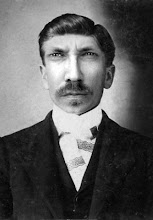Paul Schrader: As we get older - particularly as the whole process of movies and film storytelling gets older - people have different notions of what's necessary dramatically. They start to see a lot of the melodramatic machinery of the past as outdated. Reality television isn't popular for no reason. It's popular because we're tiring of artificial drama, and reality TV seems less artificial.
George Kouvaros: But it also conforms to quite traditional narrative and character arcs. The process of transformation that drives your work seems to be something quite different. I don't know if you could call it melodramatic, but it does seem to be an attempt to represent change - a change in someone's sense of who they are.
Paul Schrader: Like everyone else, I'm becoming less and less interested in the heavy machinery of movies that strike me as being a remnant of the nineteenth century. But that's a whole other subject, one I've been thinking about a lot and trying to write about.
George Kouvaros: This is something that you've spoken about before: the idea that cinema is at a point of change where the kinds of characters that interest you, the existential characters, no longer have a place.
Paul Schrader: Well, I think the point of change is even greater than I thought before. I've been doing a fair amount of research because I agreed to write this book for Faber on the film canon, and I found myself thrown into all this work about the history of the notion of the canon and why it went out of fashion. Film itself, in fact, is one of the things that destroyed the notion of the canon. When people talk about a film canon, it's kind of a contradictory phrase. So, how can you have a film canon? I've been thinking about an argument put forward by Dudley Andrew concerning the transitional nature of cinema. It comes from a seed idea by Walter Benjamin. Andrew's contention is that motion pictures are a way-station in the cavalcade of art history, a stopover en route from nineteenth century written narrative to the twenty-first century world of synthetic images and sound. While this is perhaps a little extreme, it's also very much to the point.
from "Pretending that Life has no Meaning", an interview with Paul Schrader, Sept. 19, 2006
Sunday, August 17, 2008
Subscribe to:
Post Comments (Atom)




No comments:
Post a Comment